|
|
Last Modified on Dec 15, 2021
Earnest money is your chance to show the seller that you are serious about buying the home—so serious that you are willing to put money on the line. It is important to note that your earnest money is not the same as due diligence.
As a reminder, the due diligence period is a designated period of time (usually 15-30 days) that begins when the contract has been signed by the buyer and the seller. As a buyer, you will put up anywhere between $500-$2000—or whatever amount you and your agent arrive at. The seller receives this money immediately, and it is not put into an escrow account. The only way you get this money back is if the seller breaches the contract. If the deal goes through, that money gets subtracted from the purchase price.
Earnest Money
This is a deposit you make when you go under contract. Unlike the due diligence money, it goes into an escrow account. The amount you put forth is an indirect statement to the seller. It is a good-faith representation to the seller that you intend to move forward with the contract.
Recall how we previously mentioned it was your way of “putting money on the line.” If, for example, you put down $20,000 towards earnest money, you have that much to risk if you walk away. Now, if issues surface during the due diligence period that cannot be resolved and you terminate the contract before the due diligence period expires, your earnest money is not lost. If you cancel the contract after the due diligence period, the seller likely retains the earnest money. For example, you can’t abruptly choose to buy another house that came on the market without jeopardizing your $20,000.
Why? Because the seller took their home off the market because of your offer. By breaking your contract, the seller still gets compensated.
Other Considerations
When we say that the seller gets to keep the earnest money, that is under the general assumption that there was no wrongdoing by either the seller or buyer. If that is under dispute, there will be disagreement as to who retains the earnest money.
That is one of the reasons why it is so valuable to have an attorney to represent you throughout this process. Although North Carolina requires you to have one, you can still receive a tremendous amount of benefit from the relationship.
Is It My Down Payment?
No, it is not. And this is a pervasive question. The earnest money deposit gets placed into escrow and will stay there until you close on the home. At your closing, that money is applied to the purchase price—or any other costs associated with buying the property.
Thomas & Webber Law At The Lake
Whether this is your first home or your forever home, Thomas & Webber is the energetic and experienced firm dedicated to getting you to the closing table. This is a significant time in your life, and we want you to enjoy it. Allow us to answer your questions and represent your interests to ensure you land in the home that is right for you and your family. Contact us today and get in touch with someone from our team.





